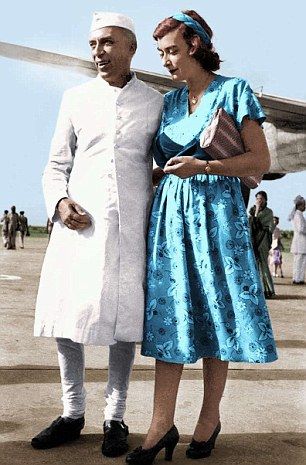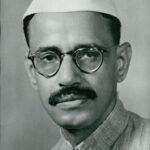Jawaharlal Nehru: The Visionary Leader Who Shaped Modern India
Jawaharlal Nehru, the first Prime Minister of independent India, is one of the most iconic figures in the history of the nation. A passionate leader, Nehru’s vision, policies, and ideals played a crucial role in shaping modern India. His life was a journey of transformation, filled with political struggles, personal sacrifices, and an unwavering commitment to the values of democracy, secularism, and social justice. Known as the architect of independent India’s political structure, Nehru left an indelible mark on the country’s social, economic, and political landscape.
Early Life and Education
Jawaharlal Nehru was born on November 14, 1889, in Allahabad (now Prayagraj) to a wealthy family. His father, Motilal Nehru, was a prominent lawyer and nationalist leader, and his mother, Swaruprani Thussu, was from a well-educated background. Nehru was fortunate to receive an excellent education, which laid the foundation for his future political career.
- Educational Background: Nehru was sent to England for his schooling at Harrow, a prestigious boarding school, and then to the renowned Eton College. After completing his schooling, he went on to study at Trinity College, Cambridge, where he graduated with a degree in natural sciences. His quest for knowledge didn’t stop there—Nehru later attended the University of Cambridge before enrolling at the University of London’s Inner Temple to study law. It was during these years abroad that Nehru’s political views began to take shape, and he was deeply influenced by the global movements for independence and justice.
Political Career and Contributions
His entry into politics began in the early 20th century, when he became involved in the Indian independence movement led by Mahatma Gandhi. Nehru was initially influenced by Western ideals, but under the guidance of Gandhi, he became more focused on India’s freedom and the rights of its people.
- Key Political Roles: Nehru was an important figure in the Indian National Congress (INC), where he quickly rose to prominence. He became the Congress President several times and was an influential voice in the freedom struggle. Nehru’s belief in secularism, democracy, and socialism set him apart from many contemporaries, and he became one of the primary leaders alongside Gandhi who spearheaded the demand for independence.
- India’s First Prime Minister: After India gained independence from British rule on August 15, 1947, Nehru became the nation’s first Prime Minister. Nehru’s leadership was instrumental in shaping the country’s democratic institutions, and his policies laid the foundation for modern India.
Jawaharlal Vision for India
As the first Prime Minister of independent India, Nehru focused on modernizing the country and transforming it into a self-reliant, prosperous nation. His vision of India was progressive, forward-thinking, and rooted in the values of unity, diversity, and secularism. Some of the key aspects of his vision include:
- Industrialization and Modernization:
- Nehru believed that India needed to become a modern industrial economy to thrive in the post-colonial world. He pushed for industrial development and advocated for state-led economic policies, which led to the establishment of public sector enterprises. His policies in this area, including the planning commissions and five-year plans, played a significant role in shaping the country’s industrial base.
- Secularism and Democracy:
- Nehru was committed to maintaining India as a secular state where all religions would be treated equally. His vision of India was one where the people, irrespective of their religious, cultural, or linguistic background, could coexist peacefully. Nehru also emphasized the importance of democracy and democratic institutions in building a strong nation.
- Education and Scientific Development:
- Nehru believed that education was a vital tool for empowerment. He pushed for reforms in education, focusing on science and technology, which led to the establishment of prestigious institutions like the Indian Institutes of Technology (IITs) and the Indian Institute of Management (IIMs). Nehru was a strong proponent of scientific research and development, which played a key role in India’s subsequent technological advancements.
- Foreign Policy and Non-Alignment:
- It’s foreign policy was built around the idea of non-alignment, meaning that India would not formally align itself with any major power block during the Cold War. His efforts in establishing the Non-Aligned Movement (NAM) helped India assert its place on the world stage as an independent, neutral nation, free from colonial influence.
Daily Life and Leadership Style
Despite his monumental responsibilities, He led a disciplined and simple life. He was a man of deep intellectual curiosity, and his daily routine was filled with reading, writing, and reflecting on India’s future. Nehru was known for his morning walks, where he would meet with his colleagues and discuss national and international affairs.
- Simple and Humble: Although He came from an affluent family, he lived a modest life. His wardrobe consisted of simple clothes, most famously the Nehru jacket, which became an iconic fashion symbol worldwide. His lifestyle reflected his values—modesty, humility, and a focus on the people rather than personal wealth.
- Connection with the People: He was deeply connected with the common people of India. He traveled extensively across the country to understand the needs and challenges faced by the masses. His speeches, often laced with optimism and hope, inspired millions to work for the betterment of the nation.
Interesting Facts About Jawaharlal
- Father of the Nation’s Children: He was affectionately called “Chacha Nehru” by children across India. His birthday, November 14, is celebrated as Children’s Day to honor his contributions to children’s education and welfare.
- Author of Several Books: He was an accomplished writer and his works include “The Discovery of India,” “Glimpses of World History,” and “An Autobiography.” These books reflect his deep understanding of history, politics, and India’s journey towards independence.
- Love for Nature and Animals: He had a great love for nature and animals, and he was an avid gardener. He believed that the natural world was an integral part of India’s identity and legacy.
FAQs About Jawaharlal
Q1. When did Jawaharlal become Prime Minister of India?
Jawaharlal Nehru became the first Prime Minister of India on August 15, 1947, after India gained independence.
Q2. What was Nehru’s role in India’s independence struggle?
Nehru played a pivotal role in India’s freedom struggle by leading the Indian National Congress and advocating for non-violent civil disobedience alongside Mahatma Gandhi.
Q3. What were Nehru’s key contributions to Indian society?
Nehru’s contributions to India included his focus on industrialization, secularism, education, scientific progress, and his leadership in establishing democratic institutions.
Significance and Legacy
Jawaharlal legacy is deeply embedded in modern India’s institutions, its approach to foreign policy, and its commitment to democracy and secularism. His vision of an inclusive, progressive, and united India continues to inspire generations of leaders and citizens alike. His presidency in India marked the beginning of a new era of self-reliance, modernity, and global standing.
His story is one of resilience, intellect, and an unshakable belief in the power of unity and democracy. As India’s first Prime Minister, he laid the groundwork for the nation’s development, ensuring that future generations could build upon the vision he set forth.










